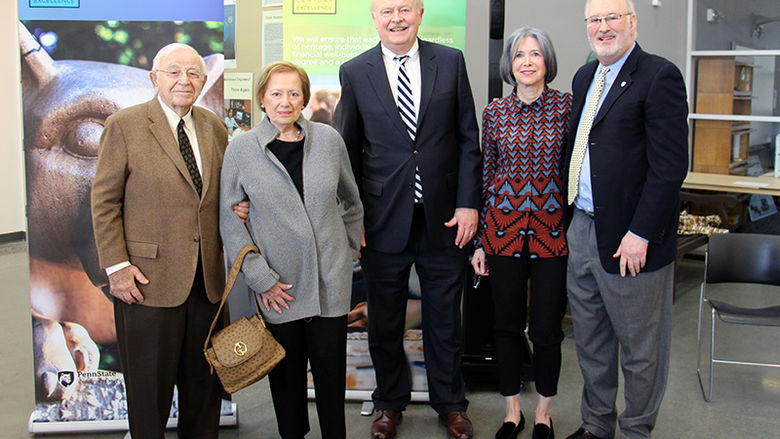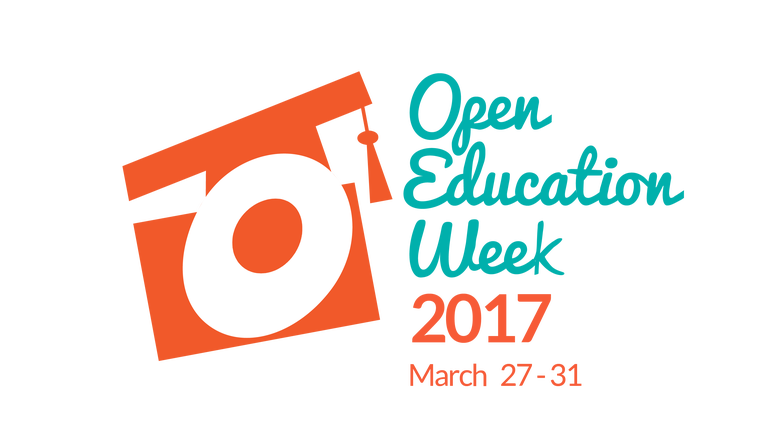
Sara Maholland
UNIVERSITY PARK, Pa. — First-generation college student Sara Maholland is not afraid to take a leap into the unknown.
“I used to be afraid, but now I ask, ‘What’s the worst that can happen?’, and usually it’s that someone says ‘no,’” she explains.
The native of Morgantown, Pennsylvania, with a population of fewer than 1,500, has made several leaps into the unknown to arrive where she is today, as a junior geography major in Penn State's College of Earth and Mineral Sciences on the path toward a career in natural disaster management. The Penn State Office for Summer Session’s Student Transitional Experience Program, or STEP, has played an instrumental role in Maholland’s journey.
“STEP was amazing,” she says. “The program provided terrific opportunities to network with other students, get ahead in my coursework and just become comfortable on campus.”
Maholland began her college career at a university closer to her hometown, but when she fell in love with geography after taking a general education course in the field, she set her sights on the College of Earth and Mineral Sciences. The Department of Geography agreed to admit her if she began her Penn State education at Penn State Berks, and in retrospect Maholland said she is glad to have made her way to the University Park campus gradually, given the size and complexity of the campus.
Her transition to University Park was smooth thanks in large measure to STEP, which provides financial and academic support for students making the junior-year transition to the University Park campus after starting at another Penn State campus. The program takes places during the summer before the student's first semester at the University Park campus. STEP enabled Maholland to take two courses at a pace that was more manageable than during the academic year, and she said she particularly appreciated the opportunity to cross calculus off her list of required courses. Because STEP places participants in shared housing and provides ample opportunities for networking, Maholland gained a group of friends who were making the same transition as her and with whom she’s remained close ever since.
“You know how you’re just naturally attracted to some people?” she asked. “That was the friend group I developed in STEP.”
STEP also enabled Maholland to learn to navigate campus and downtown State College while town was relatively quiet over the summer, before the hustle and bustle of the fall semester.
“Little things like learning where the HUB is and how to navigate State College’s bus system were huge confidence boosters,” she said, explaining that she had never taken public transit before her summer in STEP.
Maholland was able to reap the benefits of a summer at the University Park campus thanks to scholarship support. STEP provides all participants with a $1,500 provost award toward their summer tuition costs, and students who meet certain financial aid criteria are also eligible for Open Doors Scholarships. Maholland benefited from the William and Estelle Turney Open Doors Scholarship and the David and Mari Jo Schlosser Open Doors Scholarship. Without this support, Maholland explained, she would not have had the resources to extend her studies through the summer.
Thanks to STEP, Maholland will be able to go further in her geography degree than would otherwise have been possible. She is on track to finish her degree requirements early, and she plans to use the extra time to complete certificates in geospatial big data analytics and geographic information science. She said she ultimately hopes to use her Penn State education to pursue a career in natural disaster management, a field she has enjoyed exploring as a student. As part of this exploration, Maholland has undertaken projects to analyze how more robust infrastructure might have mitigated the impact of Hurricane Matthew in Haiti in 2016 and Hurricane Katrina in New Orleans in 2005.
Since her summer in STEP, Maholland has fearlessly pursued additional opportunities to expand her horizons. Her participation in the GREEN Program, an experiential education program focusing on sustainable development, enabled her to travel to Iceland to take classes at Reykjavik University, explore glaciers and experience Icelandic culture firsthand. She is also serving as an intern with the Fletcher L. Byrom Earth and Mineral Sciences Library, working to archive research on oil and natural gas outcrops in New York state, and as a member of the Earth and Mineral Sciences Student Council and Gamma Theta Upsilon, Penn State’s Geography student honor society.
“The sheer range of opportunities at Penn State is massive!” Maholland says. “Networking with alumni, internship opportunities, scholarships. I’m being pushed to succeed at Penn State, and I’m here for it. I love it. It’s awesome!”
About Achieve Penn State
The STEP program is part of Achieve Penn State, an initiative which supports hard-working students and their families by helping them plan for their future by eliminating obstacles so they can graduate with lower debt and in less time. Achieve Penn State programs support students and families through institutional scholarships, summer school and on-campus employment, financial literacy and campus transitions to help students experience all that Penn State has to offer.
To learn more about Achieve Penn State, contact achieve@psu.edu.




